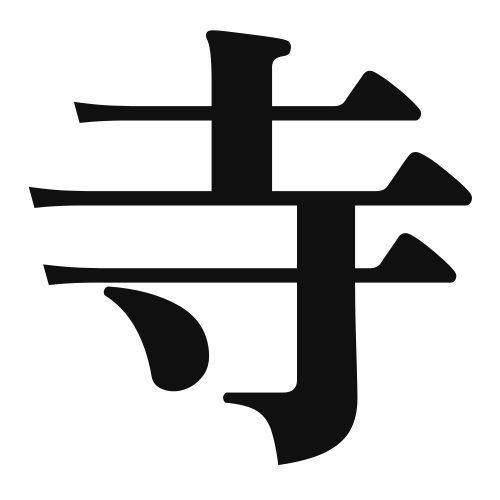1. Overview of Meaning
The kanji “寺” (tera) means “temple” in English. It refers to a place of worship, particularly in Buddhism, where people go to pray, meditate, and participate in religious activities.
2. Formation and Radicals
The kanji “寺” is a compound character that combines elements to convey its meaning. It is made up of the radical 土 (tsuchi), which means “earth” or “ground,” and the phonetic component 寺 itself, which suggests the sound and meaning related to a temple.
3. Examples of Usage
Common words and phrases that include “寺” are:
- お寺 (otera) – a polite way to say “temple”
- 寺院 (jiin) – a term for a temple or shrine
Example sentence in daily conversation:
「明日、友達とお寺に行きます。」 (Ashita, tomodachi to otera ni ikimasu.) – “Tomorrow, I will go to the temple with my friend.”
4. Synonyms and Antonyms
Similar kanji with related meanings include:
- 神社 (jinja) – meaning “shrine,” which is a place of worship in Shinto, distinct from a temple.
Antonyms or contrasting kanji include:
- 家 (ie) – meaning “house,” which refers to a home rather than a place of worship.
5. Cultural and Historical Background
The kanji “寺” is deeply connected to Japanese culture, particularly in the context of Buddhism, which has played a significant role in shaping Japanese history and society. Temples are often places of community gathering and cultural events.
Proverbs and idioms related to “寺” include:
- 寺の鐘は千年の音 (Tera no kane wa sennen no ne) – “The sound of the temple bell lasts a thousand years,” symbolizing the enduring nature of spiritual teachings.
